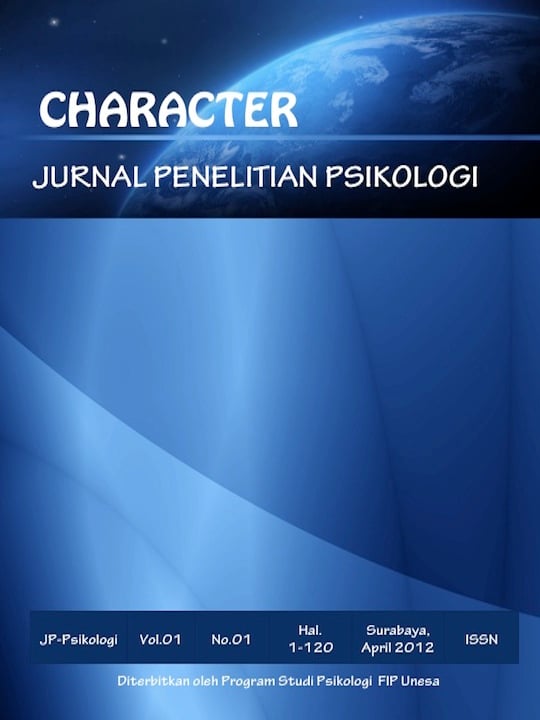PERBEDAAN KETANGGUHAN MENTAL ATLET PELAJAR LAKI-LAKI DAN PEREMPUAN
DOI:
https://doi.org/10.26740/cjpp.v9i1.45021Abstract
Abstrak
Atlet pencak silat dalam berforma salah satunya dipengaruhi faktor psikologis. Atlet pencak silat yang mengalami kecemasan olahraga akan mempengaruhi pencapaian performa optimalnya. Kecemasan olahraga salah satunya dipengaruhi oleh mental toughness merupakan salah satu karakteristik psikologis yang paling penting dalam olahraga prestasi. Tujuan dari penelitian ini yakni untuk mengetahui hubungan yang terjadi antara mental toughness dengan kecemasan olahraga pada atlet pencak silat. Penelitian ini menggunakan metode kuantitatif. Sampel jenuh digunakan pada penelitian ini. Maknanya seluruh populasi digunakan sebagai sampel penelitian. Populasi pada penelitian ini adalah atlet pencak silat Persaudaraan Setia Hati Terate Sidoarjo sebanyak 149 atlet. Rentang usia 15-19 tahun, dengan jumlah atlet laki-laki 87 dan atlet perempuan 33. Instrumen adalah skala mental toughness yang disusun berdasarkan Gucciardi et al., berjumlah 9 item. Data kecemasan olahraga diperoleh dari instrumen skala kecemasan olahraga yang disusun dari Smith et al., berjumlah 15 item. Teknik analisis data yakni dengan menggunakan korelasi product moment. Hasil penelitian menunjukkan nilai koefisien -0.058 dengan signifikansi 0,529 (p>0,05). Artinya tidak terdapat hubungan antara mental toughness dengan kecemasan olahraga. Mental toughness memang berpotensi dalam mengatasi rasa cemas atlet. Namun, mental toughness sebagai kecerdasan emosional dengan kecemasan olahraga sebagai tekanan psikologis tidak secara langsung berhubungan. Keterampilan dasar ini tidak dapat membuktikan atlet dalam menguraikan kecemasannya ketika bertanding dan berlatih.
Kata kunci: Kecemasan Olahraga, Mental toughness, Atlet Pencak Silat
Abstract
One of the forms of pencak silat athletes is influenced by psychological factors. Pencak silat athletes who experience sports anxiety will affect the achievement of optimal performance. Sports anxiety, one of which is influenced by mental toughness, is one of the most important psychological characteristics in achievement sports. The purpose of this study was to determine the relationship between mental toughness and sports anxiety in pencak silat athletes. This study uses quantitative methods. Saturated sample was used in this study. This means that the entire population is used as the research sample. The population in this study was the pencak silat athletes of the Setia Hati Terate Sidoarjo Brotherhood as many as 149 athletes. The age range is 15-19 years, with 87 male athletes and 33 female athletes. The instrument is a mental toughness scale based on Gucciardi et al., totaling 9 items. Sports anxiety data obtained from the sports anxiety scale instrument compiled from Smith et al., totaling 15 items. Data analysis technique is by using product moment correlation. The results showed the coefficient value -0.058 with a significance of 0.529 (p>0.05). This means that there is no relationship between mental toughness and sports anxiety. Mental toughness has the potential to overcome athlete's anxiety. However, mental toughness as emotional intelligence with sports anxiety as psychological stress is not directly related. These basic skills cannot prove that athletes can describe their anxiety when competing and practicing.
Key words: Sports Anxiety, Mental toughness, Pencak Silat Athletes
Downloads
Downloads
Published
How to Cite
Issue
Section
License
Authors who publish in this journal agree to the following terms:
Copyright in any article is held by the author.
The author grants the journal, publication rights with the work simultaneously licensed under a Creative Commons Attribution License that allows others to share the work with an acknowledgment of the work's authorship and initial publication in this journal.
Authors may enter into separate, additional contractual arrangements for the non-exclusive distribution of the journal's published version of the work (e.g., posting it to an institutional repository or publishing it in a book), with an acknowledgment of its initial publication in this journal.
Authors are permitted and encouraged to post their work online (e.g., in an institutional repository or on their website) prior to and during the submission process, as this can lead to productive exchanges, as well as earlier and greater citation of published work.
 Abstract views: 279
,
Abstract views: 279
, PDF Downloads: 70
PDF Downloads: 70





